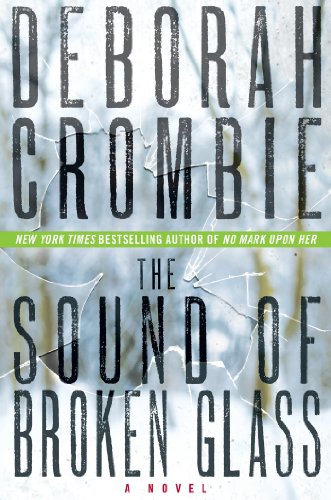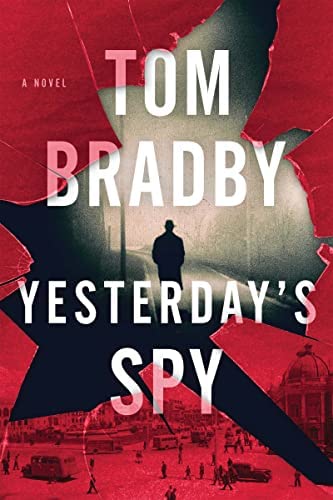
If you’ve ever contemplated writing a thriller, or even just a run-of-the-mill crime novel, you may have stopped in your tracks when you came to the point of coming up with a plot. It ain’t easy (at least for those of us who aren’t named James Patterson). Readers tend to demand stories that keep them puzzled right up to the end, surprise or shock them in the closing pages, and then leave them with a satisfied feeling that everything makes sense after all. All this requires that lots of loose ends need to be tied up tightly, shining a favorable light on the intrepid investigator who solves the case or the heroic action figure who forestalls disaster (usually something tantamount to destroying the planet we live on).
Sometimes coincidence plays a part in making all this work. And sometimes it plays much too big a part.
The Sound of Broken Glass (Duncan Kincaid and Gemma James #15) by Deborah Crombie ★★★☆☆
In her police procedurals set in England, Deborah Crombie has generally done an unusually good job of writing convincing and engaging mystery novels — despite the fact that she’s a native Texan and lives in a Texas town. On most of my previous excursions into the lives of Crombie’s protagonists, Duncan Kincaid and Gemma James, I’ve enjoyed myself immensely. (See my reviews of Now May You Weep, And Justice There Is None, and In a Dark House.) However, The Sound of Broken Glass is a disappointment, as was Crombie’s first effort, A Share in Death.
This time, the culprit is coincidence.
Kincaid and James are now married
In Broken Glass, Kincaid and James are married and raising three children (one of hers, one of his, and one adopted), and in ways that are clearly less than satisfying or convenient for them, their lives now revolve around the kids. Kincaid, a Detective Superintendant, is playing house-husband while James, promoted to Detective Inspector, chases murderers through the streets of London. James’ sidekick, Detective Sergeant Melody Talbot, works closely with her on a case that seems to involve not just vicious murder but sexual perversion as well: a prominent barrister (a lawyer who argues cases in court) has been discovered in a cheap hotel, bound and gagged in bed in a way reminiscent of autoerotic play but strangled to death as well.
As the investigation unfolds, much of the story revolves around Talbot, the upper-class daughter of one of London’s press lords. As time goes on, Talbot becomes romantically involved with a key witness in the case — and the slow, painful unraveling of his memory of a tragic childhood incident comes to figure as a central element in the resolution of the mystery.
All this might have been a lot of fun for the reader — if only Crombie hadn’t built her plot around an excess of coincidences. As it turns out, everybody involved in the case — police officer, victim, murderer, and witness alike — seems to have known just about everyone else at some time in the past. It’s really too much. I hope for better again from Deborah Crombie.
For additional reading
You might also enjoy my posts:
- Top 10 mystery and thriller series
- 20 excellent standalone mysteries and thrillers
- 30 outstanding detective series from around the world
- Top 20 suspenseful detective novels
- Top 10 historical mysteries and thrillers reviewed here
And you can always find my most popular reviews, and the most recent ones, plus a guide to this whole site, on the Home Page.


























